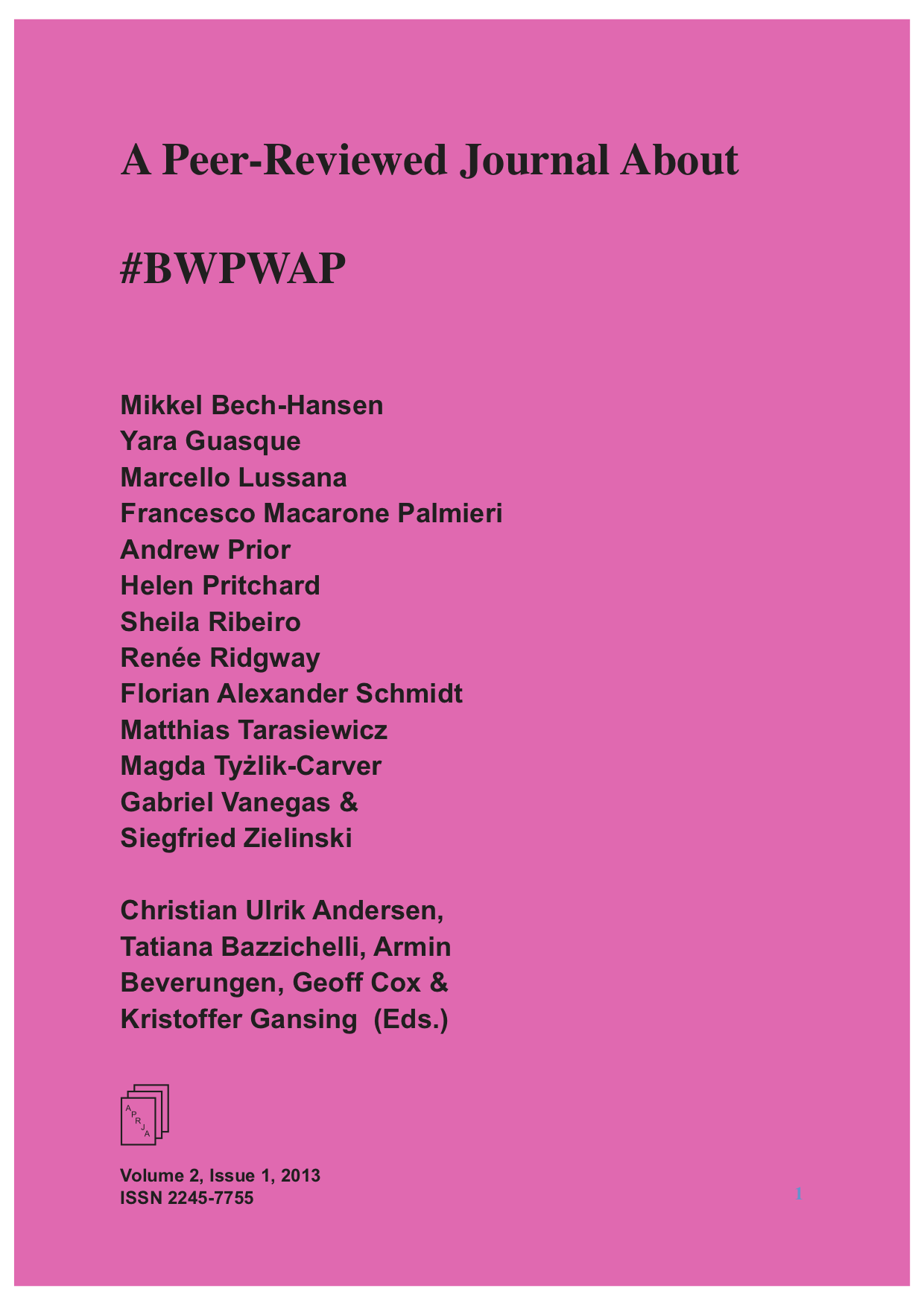Crowdfunding or Funding the Crowds
A New Model for the Distribution of Wealth?
DOI:
https://doi.org/10.7146/aprja.v2i1.121127Keywords:
crowdfunding, cultural workers, distributed networks, free labourAbstract
Instead of governmental support, increasingly more and more art workers and cultural organisations are being forced to engage with crowdfunding as a legitimate means to finance artistic practice by draw- ing on their networks, primarily their friends, family, neighbours and colleagues. While this reliance on distributed networks is celebrated, there is very little attention paid to the balance of trade-offs and returns in this model. The excessive reliance on colleagues or ‘friends’ entails other dynamics in these tit-for-tat exchanges, which need to be unpacked: affect, exploitation, and indebtedness. Relationships with people become even more entangled and, unlike money, which is anonymous, brokering agency for artistic projects results in a negotiation of social relations. Will crowdfunding en masse lead to a new model for the distribution of wealth as is claimed or is it a commodification of one’s very own social relations?
Downloads
Published
Issue
Section
License
Copyright (c) 2013 A Peer-Reviewed Journal About

This work is licensed under a Creative Commons Attribution-NonCommercial-ShareAlike 4.0 International License.
Copyrights are held by the individual authors of articles.
Unless stated otherwise, all articles are published under the CC license: ‘Attribution-NonCommercial-ShareAlike’.
The journal is free of charge for readers.
APRJA does not charge authors for Article Processing Costs (APC)


